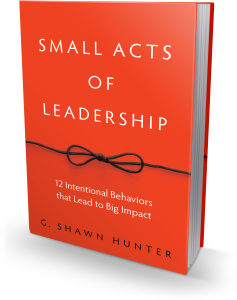Ruminating is Not Problem Solving
How did you sleep last night? Toss and turn? Stay awake fretting about your big deadline? About money, or health, or your kids, or cleaning out the attic?
When we lie awake thinking through the issues of our lives we often aren’t working through how to solve these problems, but instead ruminating on these issues over and over in our minds, kneading the unpleasant ideas until we know them well, until we can relive every feeling.
Instead of working through next steps of creating a solution, we focus on how these circumstances and events make us feel. When we were interrupted in that meeting, it made us feel like crap, it made us feel small and diminished, and we’re angry at the idiot who made the comment, and frustrated at ourselves for not doing something differently.
Ruminating is focusing on that negative feeling, but problem-solving is thinking about how to react differently and change the situation next time it happens. When we think of projects or deadlines looming, or that strange pain in our chest, we often focus on the dread or the anxiety associated with it, instead of what to do next.
The key is to move from the negativity of ruminating, to focusing on what to do next.
The way a person thinks about, and deals with, stressful events is as much an indicator of the level of stress and anxiety they feel.”
– Peter Kinderman, Head of the Institute of Psychology, Health and Society
In other words, how much our thoughts make us crazy and hold us back is largely up to us.
First, let it go. Easier said than done, right? Way back in 1927 psychologist Bluma Zeigarnik noticed that waiters remembered customers when they had some unfinished business at their table. If they had an unpaid bill, or they asked for something the waiter had not fulfilled yet, the waiter remembered more detail about the customer. Once the order was delivered and the bill paid, the waiter forgot about the customer.
Incomplete tasks are easier to remember than completed ones. Unfinished business creates a tension that stays with us, in our mind. The first step is to let go.
Next, plan a vacation. I’m kidding, sort of. Studies suggest people are happiest when we are planning for the future. When we are planning for the future we are taking past chaotic or unpleasant events and placing them in an orderly fashion in our mind. This also gives us an opportunity to reframe past events in terms of what we will do differently in the future.
“Our emotions are less reactions to the present than guides to future behavior.”
– Martin Seligman
Finally, instead of trying to make ourselves feel good, which is our self-esteem, focus more on being thoughtful to ourselves. This is self-compassion, and it’s associated with greater emotional resilience, and less narcissism. When we are thoughtful to ourselves we are also more compassionate to those around us.
Dr. Kristin Neff defines self-compassion as a kind, connected and honest way of relating to ourselves even in instances of failure, perceived inadequacy and imperfection.
Let it go, plan what you will do differently next time, and above all, be kind to yourself.
“The old saying is that when life gives you lemons, make lemonade. I say f*** that. When life gives you lemons, make margaritas.”
― Dr. Kristin Neff
- In Mindscaling’s newest course, Karen Hough teaches you how to lead in chaos. Check out The Art of Leadership Presence. Message me and I’ll send access to preview the first module of the course. It’s awesome.
- ____________________________________________________

Twitter: @gshunter
Say hello: email@gshunter.com
Web: www.shawnhunter.com




